Publications
Articles, publications, books, tools and multimedia features from the U.S. Institute of Peace provide the latest news, analysis, research findings, practitioner guides and reports, all related to the conflict zones and issues that are at the center of the Institute’s work to prevent and reduce violent conflict.
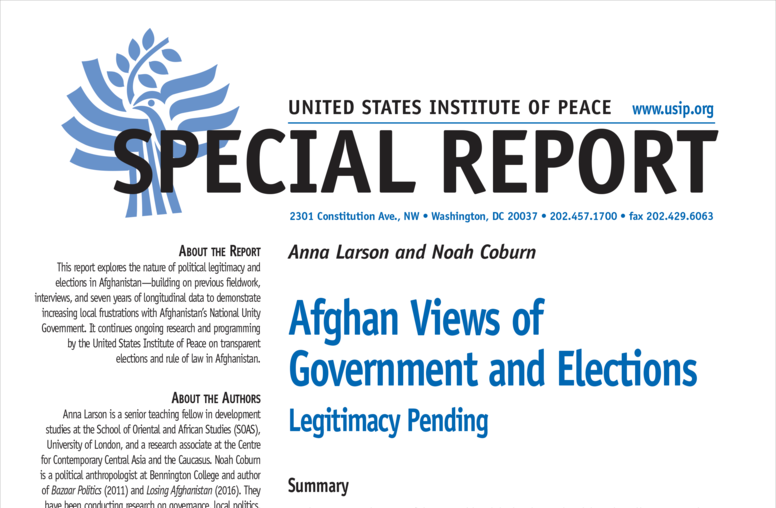
Afghan Views of Government and Elections: Legitimacy Pending
Drawing on fieldwork and interviews, this report explores the nature of political legitimacy and elections in Afghanistan in the context of instability and economic decline with an eye to the long-term future of democracy in the country.
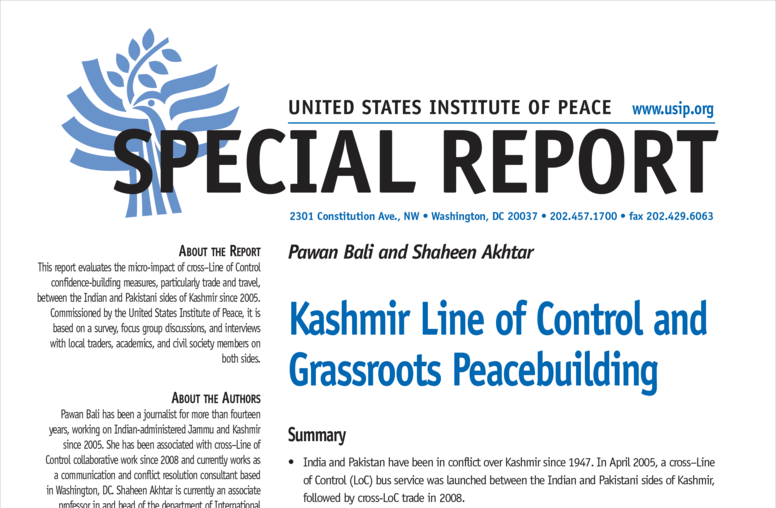
Kashmir Line of Control and Grassroots Peacebuilding
Drawn from interviews, a survey, and focus group discussions, this report evaluates the impact and relevance of grassroots peacebuilding efforts in the region. It reflects only the views of those who have been associated with cross-border trade, travel, and civil society cross-LoC interactions.
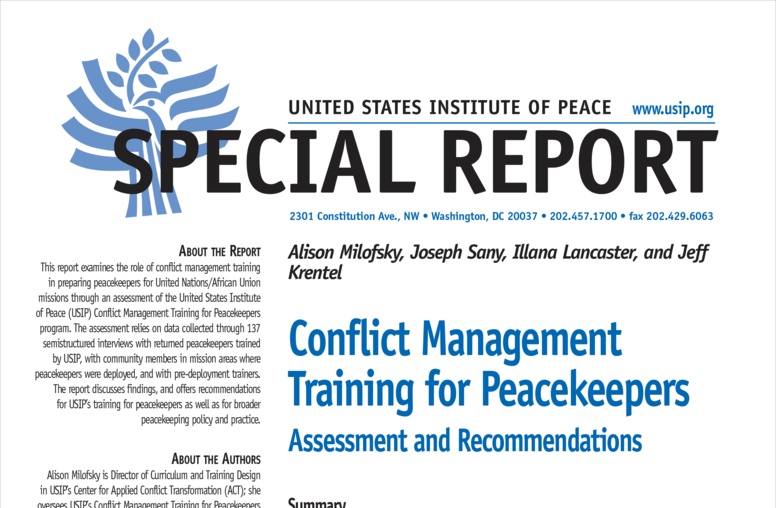
Conflict Management Training for Peacekeepers
Since 2008, USIP’s Academy has trained more than five thousand peacekeepers in core conflict management skills of conflict analysis, negotiation, mediation, and the protection of civilians. Based on interviews with returned peacekeepers...
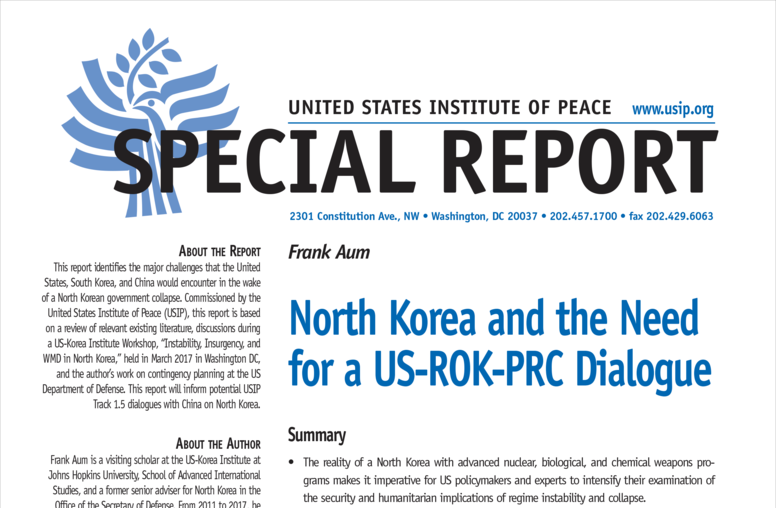
North Korea and the Need for a US-ROK-PRC Dialogue
North Korea has advanced weapons of mass destruction programs but poor WMD security, and tensions in the region are growing in response to increasing brinkmanship between Pyongyang and Washington. This report identifies the major challenges...
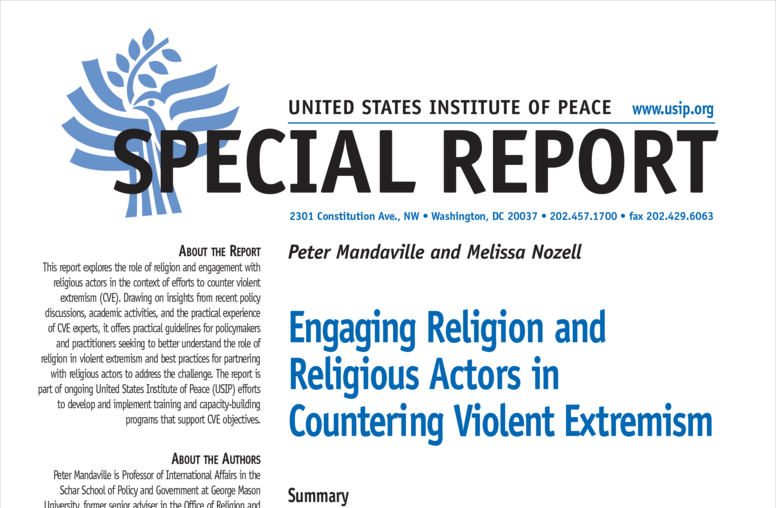
Engaging Religion and Religious Actors in Countering Violent Extremism
By more fully understanding the role of religion in violent extremism and adopting a broad-based and inclusive approach to engaging religious actors, policymakers and practitioners can better advance countering violent extremism objectives. In this report, a former senior policy adviser and a USIP senior specialist explore the nexus of religion and violent extremism.
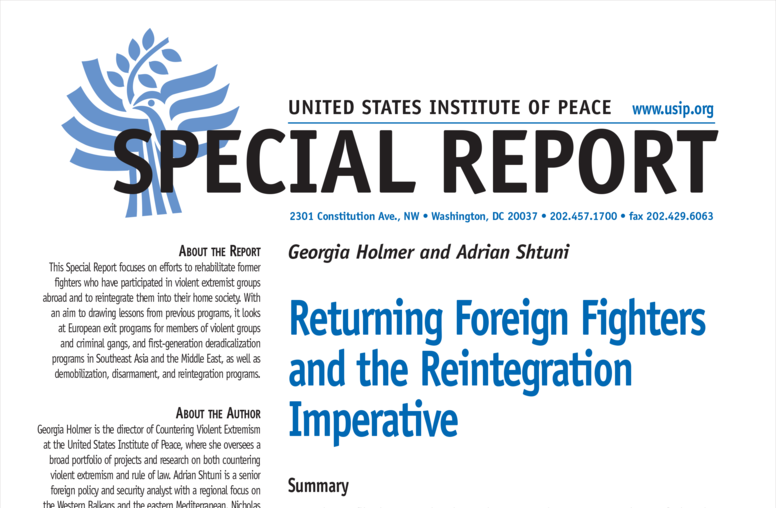
Returning Foreign Fighters and the Reintegration Imperative
This report aims to help policymakers and practitioners navigate the challenges of developing effective programs to rehabilitate and reintegrate foreign fighters returning from Syria and Iraq into their societies. Ultimately, holistic and comprehensive reintegration efforts designed to transition returnees address not only their needs, but also those of the entire society, and are critical in building more resilient and safer communities.
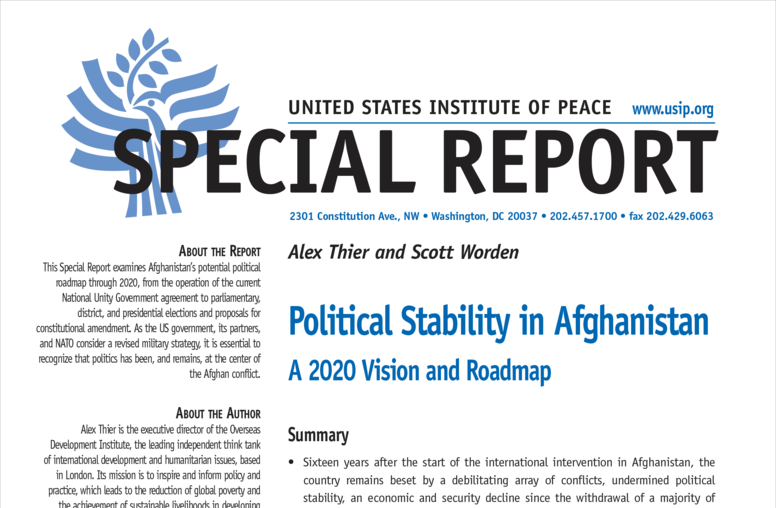
Political Stability in Afghanistan: A 2020 Vision and Roadmap
Sixteen years after the start of the international intervention in Afghanistan, the country remains beset by a debilitating array of conflicts, undermined political stability, an economic and security decline since the withdrawal of a majority of international forces, and a divided government since the 2014 elections. As the US government, its partners, and NATO consider...
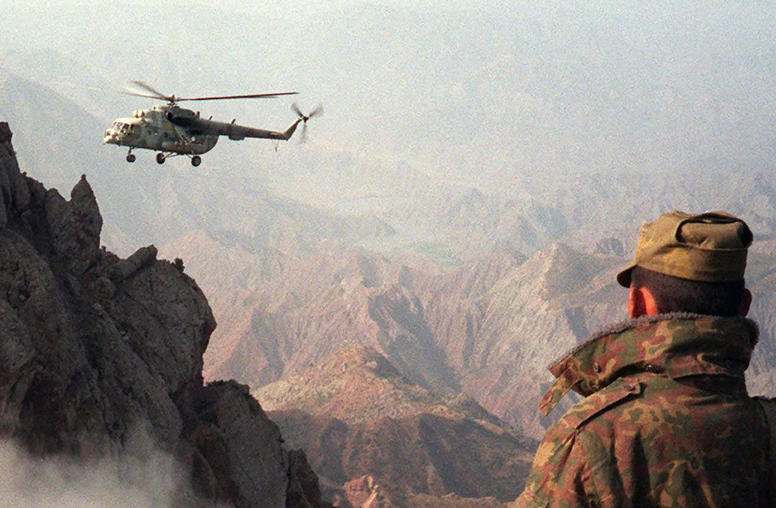
Tajikistan’s Peace Process: The Role of Track 2 Diplomacy and Lessons for Afghanistan
The peace process that ended the Tajik civil war in the late 1990s successfully combined both official and civic channels of communication and negotiation from its start. This report argues that although the agreement and its implementation were far from perfect, the Tajik experience contains valuable lessons on power-sharing arrangements, reconciliation, reintegration, and demobilization for the architects of future peace processes, and provides important insights into the shortcomings of the 2018–21 peace process in neighboring Afghanistan.
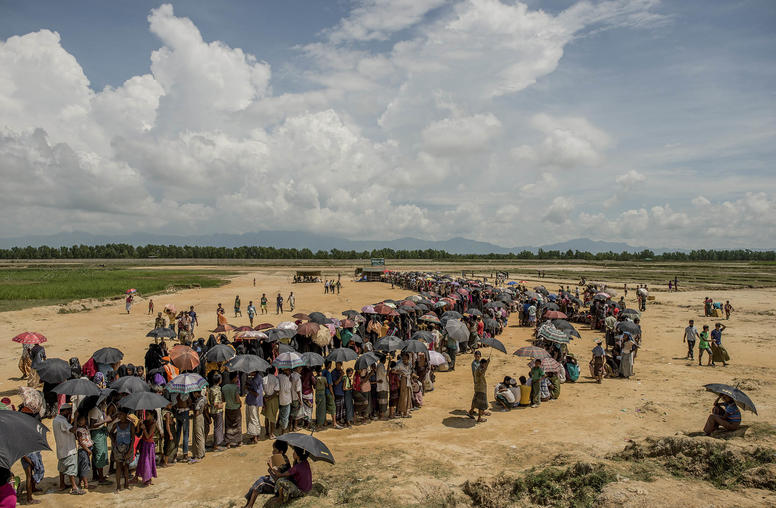
Conflict Dynamics between Bangladeshi Host Communities and Rohingya Refugees
In August 2017, several hundred thousand Rohingya fled violence and persecution in Myanmar, seeking refuge in Cox’s Bazar in neighboring Bangladesh. In the years since, the Bangladeshi government has provided a safe haven for the refugees. Yet there are signs of increasing discontent in the Bangladeshi host community over insecurity, economic costs, and other negative effects of the refugee camps. As this report explains, addressing this potentially combustible situation will be vital to ensuring a sustainable humanitarian effort in Cox’s Bazar.
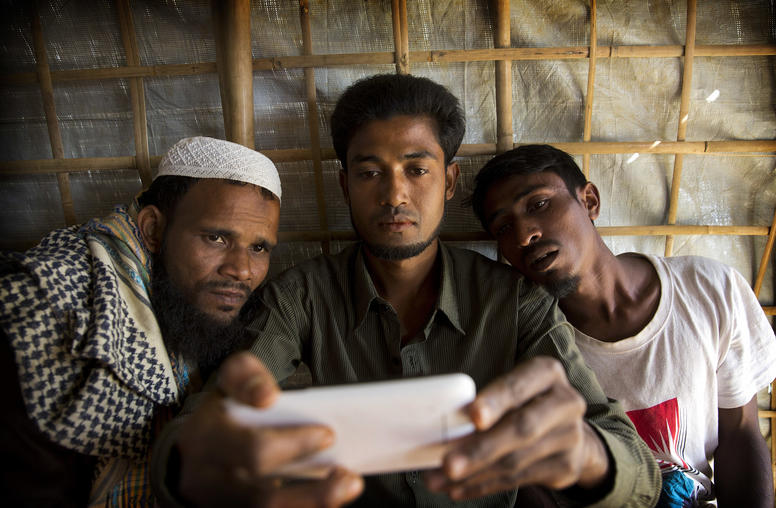
La acción no violenta en la era del autoritarismo digital: Dificultades e innovaciones
A fines de la década de 2000 y principios de 2010, los movimientos de acción no violenta utilizaron las redes sociales y otras herramientas digitales para organizar levantamientos a favor de la democracia que tomaron por sorpresa a los regímenes. Esos eufóricos comienzos han dado paso a la represión digital, las restricciones de libertades en línea y el retroceso democrático a medida que los regímenes autoritarios aprovechan las nuevas tecnologías para vigilar a la oposición y sembrar desinformación. Este informe documenta cómo los activistas no violentos se están adaptando a la represión digital y sugiere formas en que los Estados Unidos y sus aliados pueden ralentizar el ritmo de la innovación autocrática en el uso de estas tecnologías.